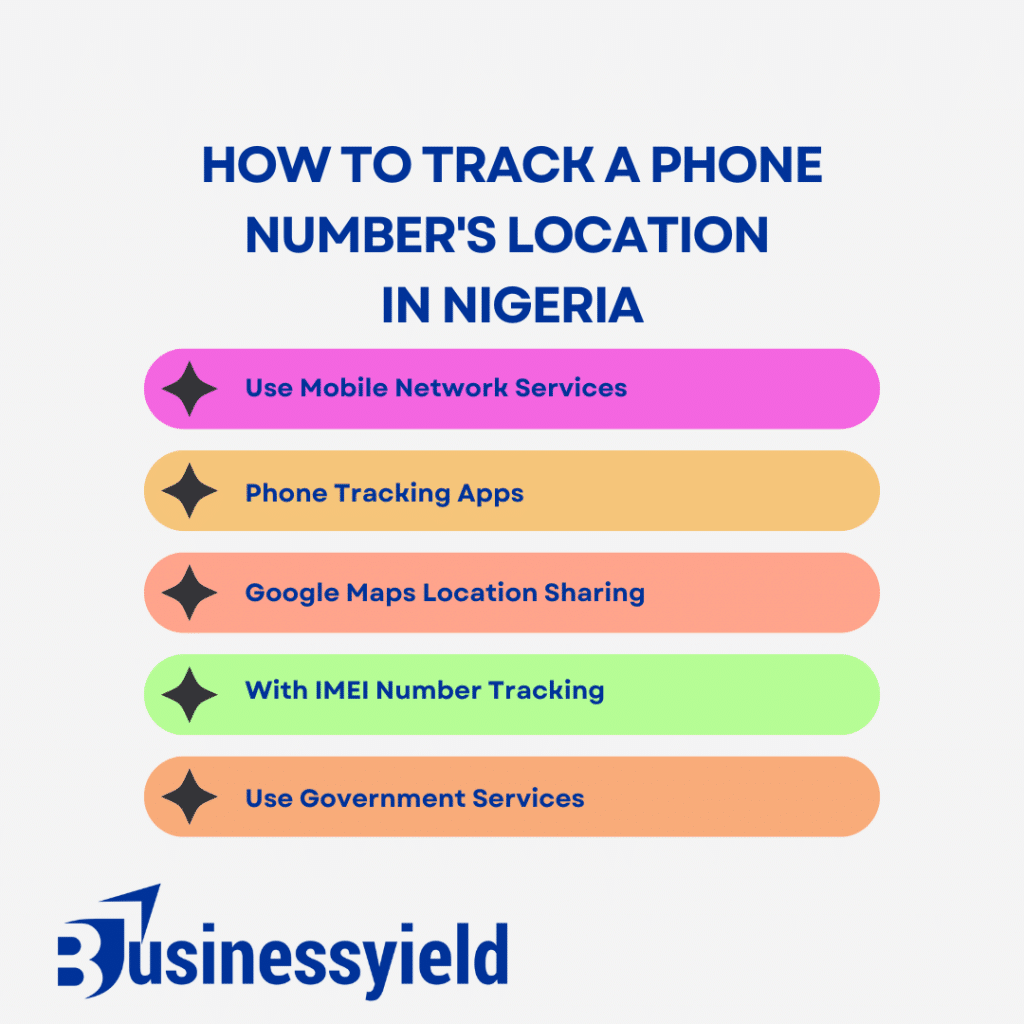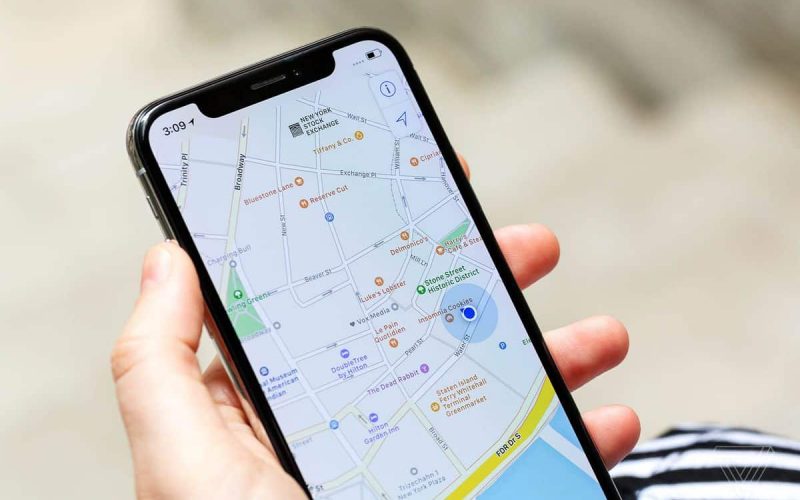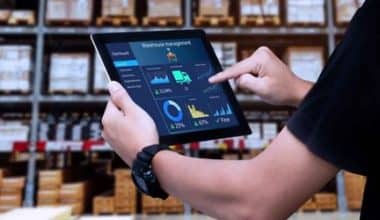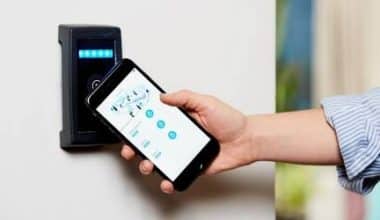If you’ve misplaced your phone, or worse, you’re trying to find a loved one in a time of need. In today’s technologically advanced world, knowing how to trace a phone number’s location can provide peace of mind and assist handle sticky situations fast. But how precisely does one track a phone number in Nigeria? I’ve been down this path before, and through trial and error, I’ve discovered the most dependable approaches and tools for making this seemingly difficult chore much easier.
In this post, I will show you how to track a phone number’s location in Nigeria. From cell networks to apps and government services, we’ll look at practical ways to help you find the best option.
What is Phone Tracking?
Phone tracking is the technique of determining a phone’s position using GPS signals, mobile towers, or Wi-Fi networks. In Nigeria, this technology is critical for a variety of reasons.
- Security: Phone tracking can help you find a lost or stolen phone. In a country where theft rates can be high, restoring your device quickly is critical.
- Emergency Situations: Parents frequently monitor the whereabouts of their children or elderly relatives to safeguard their safety.
- Business Monitoring: Companies can track employees’ phones for business-related duties such as logistics and deliveries, hence increasing service efficiency.
As I researched this, I discovered that there are several methods available in Nigeria to assist people in locating their phones. Some are quick and simple, while others are more complex but effective. Tracking technologies may make life much easier, whether you’ve lost your phone or are concerned about the safety of a family member.
How To Track A Phone Number’s Location In Nigeria

There are various options to track a phone number’s location in Nigeria. Here’s an overview of the most reliable approaches.
#1. Use Mobile Network Services
One of the simplest ways to monitor the location of a phone number in Nigeria is to use mobile network providers’ services. Nigerian networks such as MTN, Glo, Airtel, and 9mobile provide tracking services, although they are frequently utilized in conjunction with government officials.
This is how mobile network tracking works.
- SIM-based tracking: Mobile network providers can monitor phones using SIM card information by triangulating cell towers. This service is typically provided while working with law enforcement and may require legal documents.
- USSD Codes: Certain networks offer USSD codes for tracking family members. For example, Airtel has a Family Locator service that allows you to track registered family members’ phones across the network.
Note: To use network-based tracking, your phone number must be registered in your name, and the phone must be active and within range of mobile networks.
#2. Phone Tracking Apps
There are various third-party apps available for tracking a phone’s location. Some of the most reliable phone monitoring apps are:
- Find My Smartphone (Google): This software allows Android users to track their smartphones in real time, as long as location services are enabled. It can also remotely lock and delete the phone’s contents if necessary.
- Find My iPhone (Apple): The Find My iPhone feature allows iOS users to trace their misplaced devices in real time. It works even when the phone is offline, displaying the latest known position.
- Family Locator by Life360: This app is designed for families and allows them to share their whereabouts in real time. It can also notify you when a family member approaches a certain spot.
Tip: For these apps to work properly, ensure that your phone’s location services and GPS are enabled. They will be less useful if you disable location settings.
#3. Google Maps Location Sharing
If you prefer a more easy method, Google Maps includes a location-sharing feature. This is how it works.
- The person you wish to trace must reveal their current location with you.
- You may monitor them directly on Google Maps for a limited time.
This strategy is extremely beneficial for searching down family members or employees when you only need to know where they are momentarily.
#4. With IMEI Number Tracking
Each mobile phone has a unique IMEI (International Mobile Equipment Identity) number that can be used to track it. If your phone is stolen, you can submit the IMEI number to your network operator and law enforcement, who will use cell towers to monitor its location.
How to Find Your IMEI: On your phone, dial #06# to acquire your IMEI number. Keep this number somewhere safe, as it is critical for tracing down a lost or stolen device.
#5. Use Government Services
The Nigerian government, through the Nigerian Communications Commission (NCC), has implemented measures to reduce phone theft and fraud. You can report a stolen phone to the NCC, and they will work with telecom carriers to disable it using the IMEI number. While this will not immediately restore the phone, it will render it inoperable.
Best Phone Tracking Applications
Here are some of the best phone monitoring applications available, including options for both iOS and Android devices.
#1. Google Find My Device (Android).
Google Find My Device is one of the most dependable and simple phone tracking apps for Android users. It enables you to locate your misplaced phone, remotely lock it, and, if required, erase its data.
- Key Features: real-time location monitoring, remote locking, data erasure, and audible alarm.
- Pros: It’s free, simple to use, and interacts with your Google account.
- Cons: Must be enabled before the phone is lost; GPS must be turned on.
- Platform: android.
- Cost: free.
#2. Find my iPhone (iOS)
Find My iPhone is an outstanding built-in program that assists in the recovery of lost or stolen Apple devices. You may view your device’s location, flag it as lost, and remotely lock or wipe it.
- Key Features: Location tracking, Lost Mode, remote data erasure, and Play Sound function.
- Pros: Free, fully integrated into all Apple devices, and simple to use.
- Cons: Requires Apple ID, which must be enabled first.
- Platform: iOS.
- Cost: free.
#3. Life360 (iOS, Android)
Life360 is a family and location-sharing app with advanced tracking capabilities. While it’s primarily intended for family safety, it may also be used to track lost or stolen phones.
- Main Features: Real-time location sharing, crash detection, driving reports, and geofencing.
- Pros: Family-friendly, supports multiple devices, and provides real-time location notifications.
- Cons: The free version is limited in features and drains the battery.
- Platform: iOS, Android.
- Cost: Free (premium alternatives are available).
#4. Prey Anti-Theft (iOS, Android)
Prey is an anti-theft app that offers complete tracking and security features. It lets you track up to three devices with a single account and even send commands to recover a lost device.
- Key Features: GPS tracking, remote locking, alarm sound, remote data deletion, and phone recovery reports.
- Pros: Compatible with many devices, includes stealth mode, and supports Android and iOS.
- Cons: The free version is limited and requires prior setup.
- Platform: iOS and Android.
- Cost: Free (premium plans begin at $5/month).
#5. mSpy (iOS, Android)
mSpy is a comprehensive tracking app intended primarily for parental control, but it also has advanced tracking capabilities. It lets you track your GPS location, as well as monitor calls, messages, and social media activities.
- Key Features include GPS tracking, geofencing, social media monitoring, and call and text logs.
- Pros: Excellent parental control options, thorough tracking, and remote access to phone activity.
- Cons: Subscription required, more complex setup.
- Platform: iOS and Android.
- Cost: Starts at $29.99 per month.
#6. FamiSafe (iOS/Android)
FamiSafe is another parental control app that includes location-tracking functionality. It offers real-time location data, geofencing, and activity reports, making it ideal for families.
- Key Features: Real-time location tracking, app usage monitoring, and geofencing notifications.
- Pros: Simple to use, effective for family tracking, and app, and screen time management.
- Cons: Some functions are only available with a paid subscription.
- Platform: iOS and Android.
- Cost: Free trial; premium starts at $9.99 per month.
#7. Cerberus (Android)
Cerberus is an anti-theft app with advanced tools for tracking and recovering lost phones. It allows you to take images of the thief, remotely lock the phone, and show a message on the screen.
- Key Features: GPS tracking, remote lock, photo/video surveillance of the burglar, and alarm activation.
- Pros: Comprehensive theft protection features, including SMS commands and stealth mode.
- Cons: Only available on Android, and the free version is limited.
- Platform: android.
- Cost: Free trial; $5 per year for premium.
#8. Spyic (iOS/Android)
Spyic is a phone monitoring app with advanced location tracking capabilities, perfect for parents or employers. It works in stealth mode, which allows you to track without the user’s knowledge.
- Key Features: Real-time GPS tracking, geofencing, SMS monitoring, and call logs.
- Pros: Discrete tracking, multi-device support, and a simple user interface.
- Cons: Subscription required; may be too intrusive for casual use.
- Platform: iOS and Android.
- Cost: Starting at $39.99 per month.
#9. Where is My Droid? (Android)
Where’s My Droid is a dedicated Android tracking app that lets you track and control your phone remotely. It also has GPS tracking and the capability to delete data.
- Key Features: GPS tracking, remote data erasing, and phone finder.
- Pros: Lightweight, simple to use, and ideal for lost phone recovery.
- Cons: Only available for Android.
- Platform: android.
- Cost: Free; premium version starts at $3.99 per month.
#10. FlexiSPY (iOS/Android)
FlexiSPY is an advanced tracking and monitoring app that includes real-time GPS tracking, call recording, and remote camera access. It is better suited for extensive monitoring applications.
- Key features: include GPS tracking, call recording, remote camera access, and social media tracking.
- Pros: Advanced tracking and monitoring, with a variety of functions.
- Cons: Expensive subscription fees, and complicated setup.
- Platform: iOS and Android.
- Cost: Starts at $29.95 per month.
These apps can help you track your phone in the event of theft or loss, or simply keep a watch on your loved ones’ whereabouts for safety. Always follow privacy laws and use tracking applications appropriately.
Is it legal to track someone’s phone without their consent?
The Nigerian Data Protection Regulation (NDPR) forbids tracking someone’s phone without their express consent in Nigeria. It is critical to recognize that unlawful tracking, even with good intentions, can result in legal consequences such as fines or imprisonment. You may only track phones that are in your possession or registered to you, such as your phone, phones belonging to underage children, or workers’ phones, with clear, recorded agreement. Law enforcement agencies, such as the Nigerian Police Force (NPF), have the legal authority to track phones as part of investigations, but they do so only under stringent legal restrictions, usually with a court order or in an emergency.
Can a phone be traced while it is turned off?
When a phone is turned off, tracking it in real-time is impossible since there is no active signal connecting it to local cell towers or GPS satellites. However, tracking applications like Find My Device (for Android) and Find My iPhone (for iOS) can display the phone’s last known location before it was turned off. This information can help you narrow your search. Furthermore, if the phone is turned back on, apps and network providers can continue real-time tracking immediately. In the instance of stolen phones, the last known location feature may provide critical clues for recovering the device before it is totally reset or turned off permanently.
What is the cost of tracking a phone number in Nigeria?
The cost of monitoring a phone number in Nigeria varies according to the method employed. Using your mobile network operator to monitor a lost or stolen phone usually requires legal paperwork and a minor cost. Some network providers may include tracking services as part of their family plans, which need a membership cost but are often reasonable.
Tracking for app-based solutions such as Google Find My Device and Find My iPhone is free, but you must first enable location services and GPS. Premium third-party monitoring programs or software may charge between $10 and $30 per month for enhanced tracking features such as geofencing, live tracking, and longer location history. Always use legitimate apps to avoid fraud and illegal data access.
What should I do if my phone gets stolen?
If your phone is stolen, take urgent action to increase your chances of recovery:
- Report the theft: Please notify your cell network operator immediately. They can disable the SIM card and even track the phone using the IMEI number.
- Contact law enforcement: Go to the nearest police station and provide the IMEI number of the stolen phone. The police can coordinate with mobile service providers to locate and recover your device. In Nigeria, IMEI tracing is routinely utilized for theft cases.
- Use tracking apps: If you’ve enabled apps like Find My Device or Find My iPhone, try tracking the device online. To protect your personal information, you can also remotely lock or erase the phone’s data.
- Block your accounts: To increase security, consider signing out of all your accounts from a different device. This includes deleting mobile banking apps and email accounts associated with your phone.
- Activate IMEI blocking: If you cannot recover the phone, contact your network operator to block the IMEI number, rendering the phone useless to thieves and preventing it from being used on any network.
Taking these actions right away can dramatically increase your chances of getting your phone returned and protecting your important data.
Key Takeaways
- You can track phones in Nigeria with mobile network services, tracking apps, IMEI numbers, and government services.
- To use tracking apps, ensure that your phone’s location services and GPS are enabled.
- Use this simple technique to share temporary real-time tracking data with relatives or friends.
- Always keep your IMEI number saved for simple monitoring in the event of theft.
- Ensure you have permission to trace a phone to avoid legal sanctions.
Conclusion
Knowing how to trace a phone number location in Nigeria can be quite useful, whether you’re concerned about your safety, trying to find a missing phone, or keeping track of family members. There is something for everyone, with choices ranging from mobile network tracking to third-party apps. Have you ever had to track a phone? Which strategy worked best for you?
- What is iOS: Versions & What You Should Know
- How To Make A Netflix Account Private: Detailed Guide
- When Is The iPhone 16 Coming Out? Features, Models, and Prices
- IPhone VS ANDROID: Which Is Best for You?
- GPS TRACKING SOFTWARE: Best GPS Tracking Software 2024






